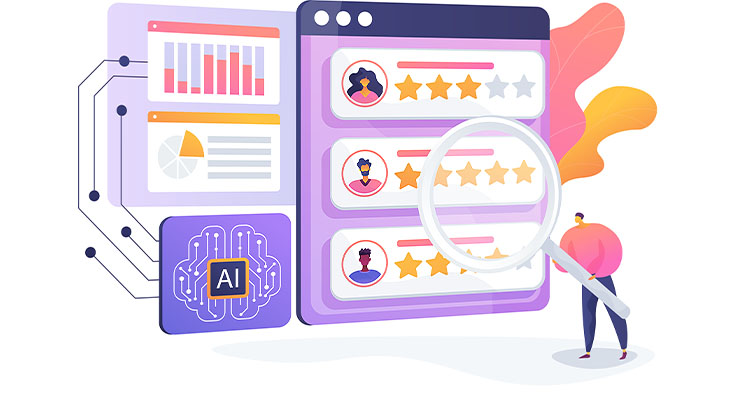Eric Jorgensen of Zendesk champions making customer service experience extraordinary
Like most people working in IT sales, I didn’t necessarily aspire to do so. I was involved with the military when I was younger but was discharged prior to going to Sandhurst. I had some appreciation for customer experience (CX) from working in a call center when I was at university, and my first post-military job was working on a help desk for a large IT company. So, I decided to give IT sales a go and that was 25 years ago. I’ve since worked for a variety of different-sized companies, some as small as 20-to-30 people, and others as large as IBM and Dell Technologies with thousands of employees,” begins Eric Jorgensen, VP Enterprise Sales EMEA at Zendesk.
“I joined Zendesk four years ago. My previous company deployed their platform, so I was aware of the organization. It’s almost like going full circle; my career began answering the phone in a contact center, helping people with their queries, and now I work for a company that provides a platform to facilitate that.”
Better relationships
Zendesk is a complete customer service solution that’s easy to use and scales with its clients’ businesses. Its sales CRM enhances productivity, processes and pipeline visibility for sales teams. The company is on a mission to power exceptional service for every person on the planet. As the industry leader in CX, Zendesk helps businesses bring together the best AI agents, workflow automation, and human agents for their customers and employees. With Zendesk’s software and expertise, businesses deliver a service that increases customer loyalty and drives revenue at a reduced cost.
The most successful businesses understand the importance of great customer experience. Zendesk believes that every great customer relationship stems from a seamless customer experience, hence the creation of software that designs solutions to foster better customer relationships.
Successful companies also understand the need for technology that helps their business adapt in today’s world. Founded to democratize customer service software and make it easy to try, buy and use, Zendesk is built on an open and flexible platform that is quick to set up and fully customizable. With Zendesk, companies of all sizes and across industries make it easy for customers to do business with them.

Reinforcing loyalty
Today more than ever, consumers are expecting AI-powered interactions in every facet of their experience. With over 10,000 consumers and business respondents surveyed from 22 countries, Zendesk spells out the trends on top of leaders’ minds in its most recent report so businesses can be ready for what’s next in CX.
“I think 18 months to two years ago, CX trendsetters were experimenting and trialing,” Eric shares. “Now I think they’re implementing and deploying at scale. Those who are more in control of their data, information and knowledge find it easier to automate and layer AI into their processes. I think these trendsetters have always been perhaps further ahead in the foundational aspects of CX and this has enabled them to more easily step into the world of AI and bots.
“Something we’re seeing in our report and in our interactions is the trend around shadow use of AI. Shadow AI refers to the deployment and use of artificial intelligence tools and applications within an organization without formal approval or oversight from the IT department. I mean, personally speaking, it’s very easy to access AI models and copy and paste data. As such, I can understand the rise of shadow AI. The risk lies in it being a potentially ungoverned, unsecure way of operating.
“It’s important for CX agents to be able to access those tools in a controlled, governed, secure, and structured way. With a modern platform and secure and comprehensive data, it’s possible to leverage technology appropriately and responsibly. I think trust takes a long time to gain,” he continues, “and can quickly be lost. Where AI is concerned, trust is strengthening because of the quality responses people are experiencing. As a customer, you just want your query to be dealt with in the most efficient way possible. Therefore, trust builds over time in line with quality CX responses. Bots are increasingly responsive and sophisticated, and I think more people are keen to interact with them because they offer a quick and efficient way to get what they need. We’re also seeing a lot less negative feedback about AI agents reported in the press and in general.
“Increasingly, AI agents articulate a persona that aligns with an organization’s brand, creating an extension of that organization, which can help to reinforce brand loyalty. Companies have so much legacy data relating to a customer’s previous interactions with them. As such, it’s frustrating to deal with an organization where every interaction feels like the first time. Enhancing both the persona of the bot and improving personalized CX helps to accelerate brand loyalty and trust. From a personal perspective for example, I don’t listen to voicemails, particularly if it’s a number I don’t recognize. I tend to interact via email. Knowing that that is my preferred method of correspondence is just one example of personalizing CX.
“The power of the model is increasing and the cost to query is coming down,” Eric shares. “The queries are more complicated but with the right data, the cost model is increasingly sustainable, thereby driving operational efficiency. Again, with the right data, bots can build relevant product comparisons and present offers to attract new customers and retain existing ones. Interestingly, voice AI technology is an increasingly popular channel, as feeling heard can be a critical factor for satisfactory CX. Likewise, effective voice responses can free up human agents for more complex interactions.
“Putting aside the regulatory side of data, as every company wants to be compliant, it’s crucial for customers to trust organizations with their data and trust them to provide a secure and efficient service. Ensuring customer trust by having a secure compliant platform is just the first step. After that, it’s about the ability to innovate at pace and provide an iterative CX that improves and enhances over time. From Zendesk’s perspective, the billions of customer interactions our platform handles means that we don’t have to start from scratch every time. We already have a mature model that enables people to get value from the platform very quickly.”
Humans remain vital
Looking to the future, in terms of innovation, Eric believes the complexity of AI agents’ capabilities will only improve, along with the quality of response and personalization. “If you look at some of the biggest retailers in the world,” he suggests, “much of the innovation is around making things easy for people, and if I have a great interaction with one brand, I’ll expect that from other brands, which can drive competitive advantage. Customer interaction is also likely to increase. If I get a quick and satisfactory response through an app or a website, then I’m more likely to increase that method of interaction.
“It’s a continuous evolution. That said, in some ways for me the overriding sentiment is that we still see a big role for human agents. As much as AI is critical and will only continue to increase in importance and adoption, human agents will continue to play an important role in the value chain, perhaps not in terms of volume but rather in empathic interaction. Human agents are also integral to the successful training and development of AI, ensuring bots can address volume while they provide a better service in complex cases,” Eric concludes. “Human agents are vital components in the evolving world of CX, helping to set the next phase up for success.”
